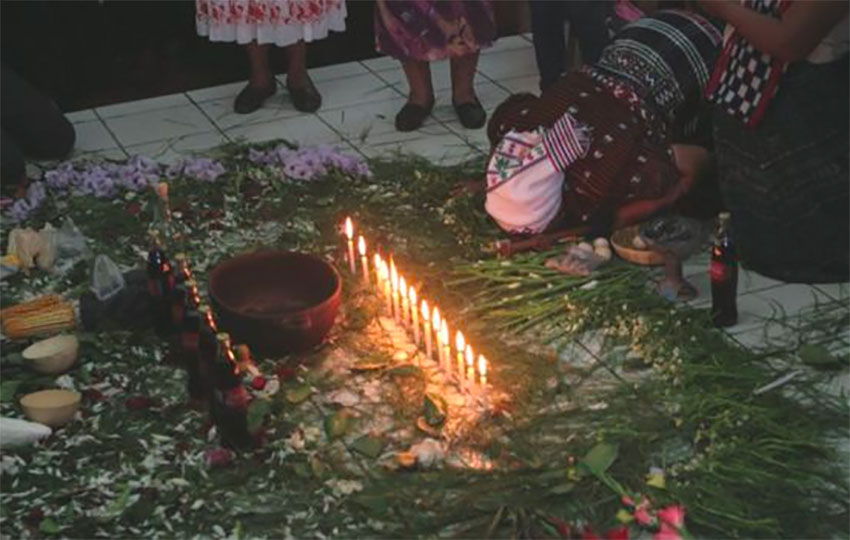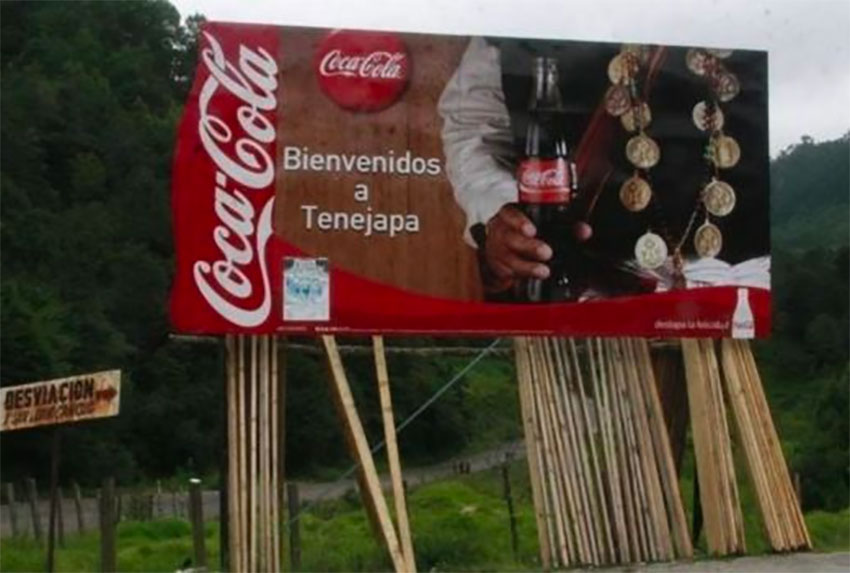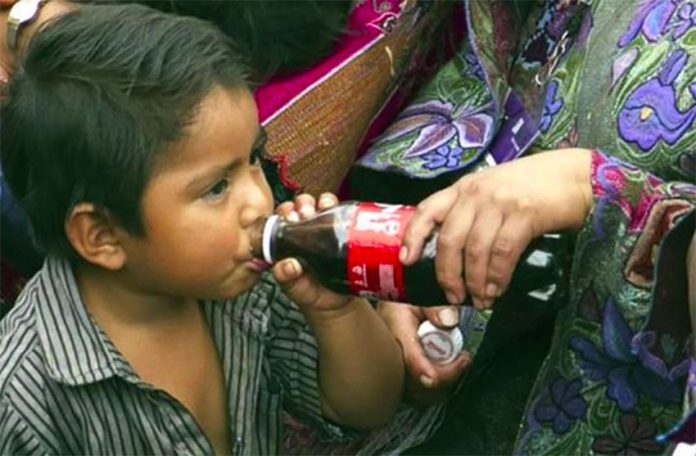Nobody in the world drinks more Coca-Cola and other sugary drinks than the residents of Chiapas, Mexico’s southernmost and poorest state.
According to a 2019 study by the Chiapas and Southern Border Multidisciplinary Research Center (Cimsur), residents of the southern state drink an average of 821.25 liters of soda per person per year.
Broken down, the immensity of the quantity seems even more astonishing: every man, woman and child in Chiapas drinks an average of 3,285 — yes, three thousand two hundred and eighty-five – 250-milliliter cups of soda a year, according to the study.
That’s almost 16 liters per person per week or 2.2 liters per day of what Deputy Health Minister Hugo López-Gatell recently called “bottled poison” when asserting that Covid-19 has had a huge impact on Mexico due to the high prevalence of diet-related chronic diseases.
The Cimsur study found that the sugary drink consumption rate in Chiapas is more than five times higher than the national rate of 150 liters per person per year.
Residents of the United States drink an average of 100 liters of soft drink a year, the study found, while the global average is 25 liters, just 3% of the consumption level in Chiapas.
Marcos Arana, a researcher at the National Institute of Medical Sciences and Nutrition, described Chiapas as the “epicenter” of Mexico’s “soft drink consumption epidemic.”
Consumption of refrescos, as soft drinks are known, is particularly high in the Los Altos region, where the majority of residents are indigenous people who mostly live in rural towns and villages.
Coca-Cola, which has a bottling plant in San Cristóbal de las Casas, is the undisputed “king of kings” in the region’s soda market.
According to the Cimsur study, among the reasons why Coca-Cola and other refrescos are so popular in Chiapas are marketing campaigns in indigenous languages – mainly Mayan – and limited access to clean drinking water.
In a 2018 report, The New York Times said that some neighborhoods in San Cristóbal de las Casas, Los Altos’ regional hub, have running water just a few times a week, forcing many households to buy additional water from tanker trucks.

“So, many residents drink Coca-Cola, which … can be easier to find than bottled water and is almost as cheap,” the report said.
Similarly, Arana, the medical researcher, told BBC Mundo that “Coca-Cola is the most available product in Los Altos.”
“One has to walk a greater distance to buy tortillas or anything else,” he said. “The number of points of sale is excessive, there is no control, and prices are reduced by up to 30%.”
The discount effectively eliminates the federal tax of 1 peso per liter on sugary drinks, which was imposed in January 2014 as part of efforts to reduce consumption and associated health problems such as diabetes and obesity.
Arana said the widespread availability of cheap soda as well as advertising that specifically targets vulnerable Chiapas residents have created an addiction in many people who now see sugary beverages as an everyday necessity rather than a luxury or treat. A 2016 study found that 3% of babies in Chiapas are given Coca-Cola by their mothers when they should only be drinking breast milk, he said.
Unsurprisingly, diabetes is a major problem in Chiapas, claiming more than 3,000 lives in the state per year, according to the Times report.
Jaime Page Pliego, the author of the Cimsur study, told BBC Mundo that he heard from residents of Tenejapa, a municipality near San Cristóbal, that diabetes and heart disease were not a problem there until the construction of a paved road to the town that allowed the easy distribution of soft drinks and junk food.
It’s now customary for Tenejapa residents to drink two or three liters of Coca-Cola while on their lunch break from working in the fields, he said.
Page added that when he asks chiapanecos, as residents of the southern state are called, why they drink so many soft drinks, he usually hears the same answers: “Because I like it; it fills me up; I miss it when I don’t drink it; I can’t stop drinking it.”
“Even diabetics … acknowledge that they keep drinking it. … They can’t imagine life without soft drinks. It’s truly a tragedy,” he said.
Soda, and especially Coca-Cola, has also been given a role in the religious lives of indigenous Mayan people in Chiapas.
Page explained that Coke has replaced pox, a corn and sugar cane liquor, as an offering to the Gods in some traditional indigenous ceremonies and rituals.

“Especially in … healing rituals, [alcohol] was substituted with a soft drink [Coke], which has a sweet smell similar to pox,” Page said. “It has become the main offering for the nutrition of the gods.”
The elevation of the humble Coke to religious artifact has increased its prestige to a point that a person who is offered a different soft drink at a social or political gathering may consider it a slight.
“He who offers Coca-Cola has a good status in the community. If he offers another refresco in areas where this brand dominates, he is seen” in a poor light, Page said.
Arana told BBC Mundo that in order to reduce consumption of sugary drinks in Chiapas, more needs to be done to educate communities about the risks associated with their consumption. He also said that traditional foods and beverages, such as the corn drink pozol, need to be promoted more and that access to water must be guaranteed.
In addition, the researcher said that steps should be taken to reduce the availability of Coke and other soft drinks.
“If the authorities do something like canceling the concession for the production of Coca-Cola in the area or at least [force the company] to reduce the volume of production, it will encourage a more positive future” and help to lessen the addiction to sugar, Page said.
Santiago López Jaramillo, Latin America director of the International Council of Beverage Associations, said the council wants to work with Mexican authorities to address problems associated with excessive soft drink consumption.
He also noted that Mexican soft drink producers have committed to reducing the calorie content of the drinks they make and sell by a further 20% by 2024 after already making cuts in recent years.
But Page is pessimistic about the possibility that the health of chiapanecos will improve any time soon.
“I have no hope. I speak to people in the communities and they don’t point to any solution,” he said.
Without an exorbitant price hike or drastically reducing availability, Page said, people will continue to consume sugary drinks at high levels.
“I believe that the only way [to reduce consumption] is to eliminate these products,” he added.
Source: BBC Mundo (sp)
